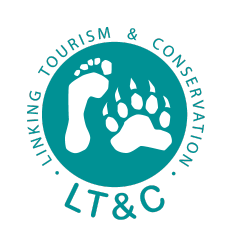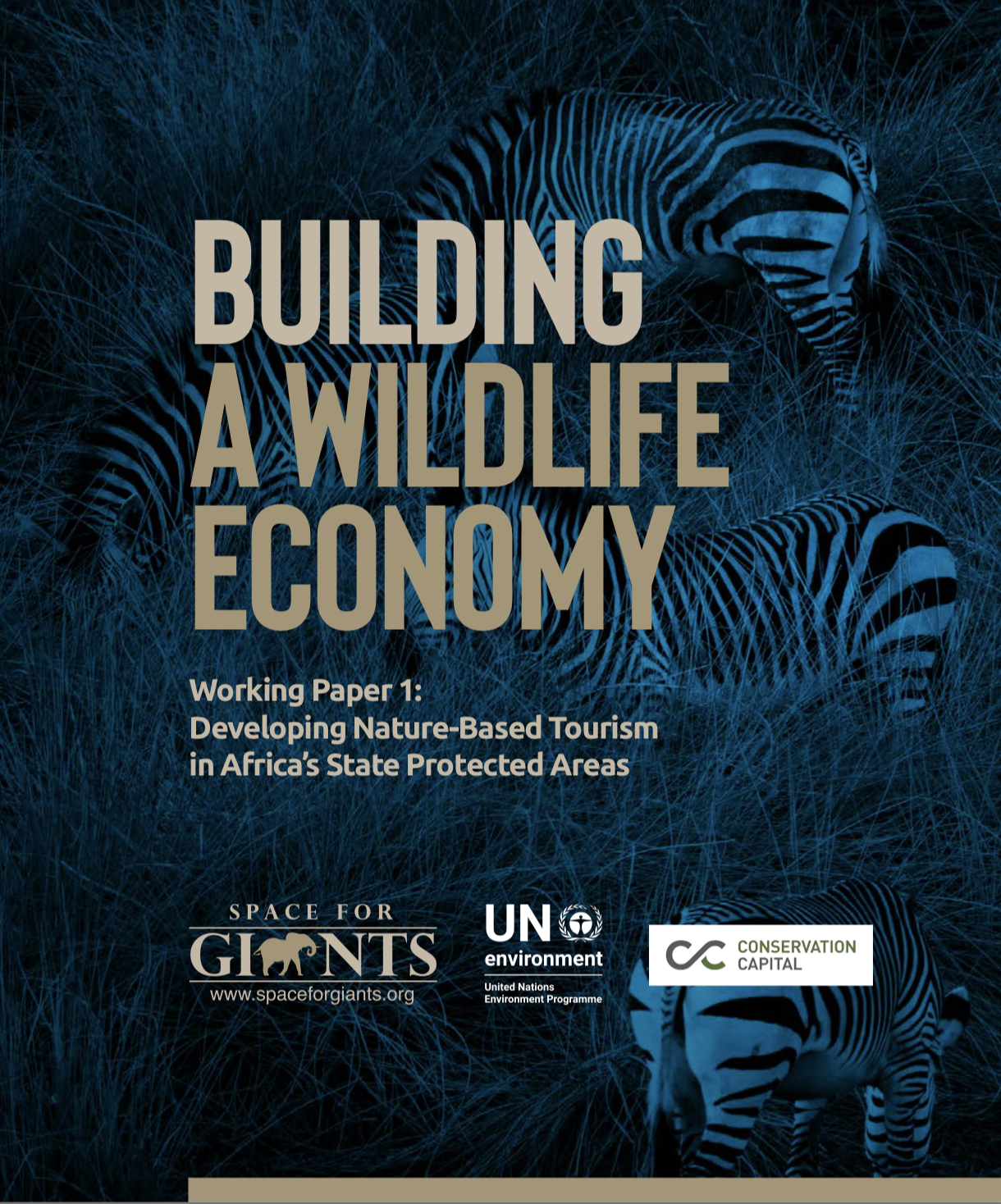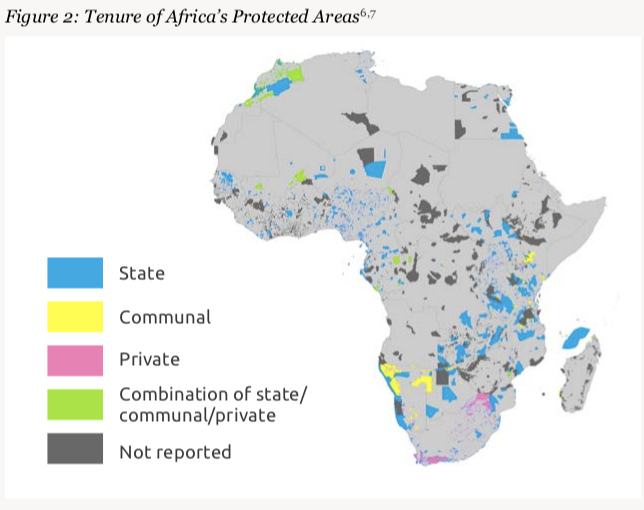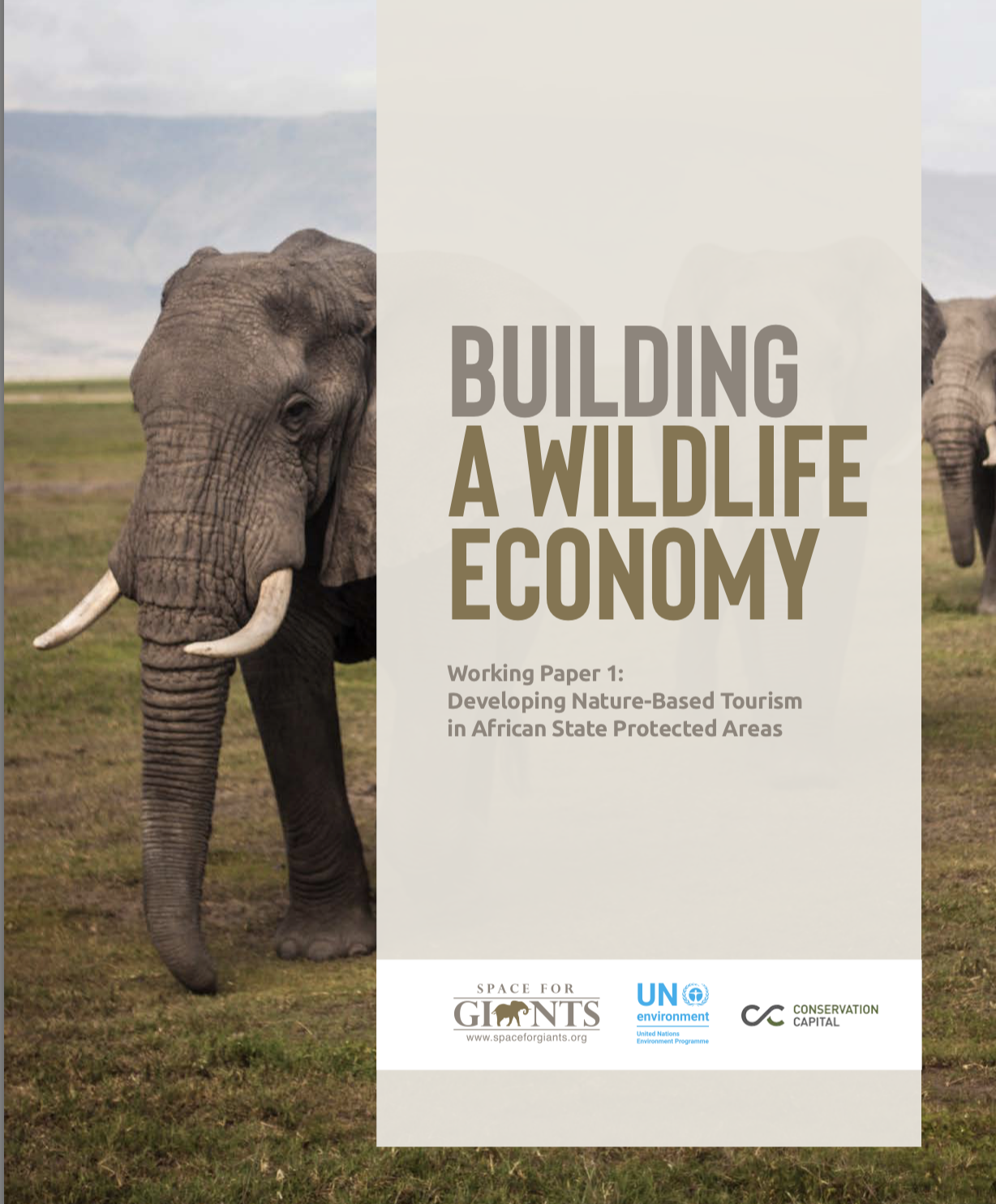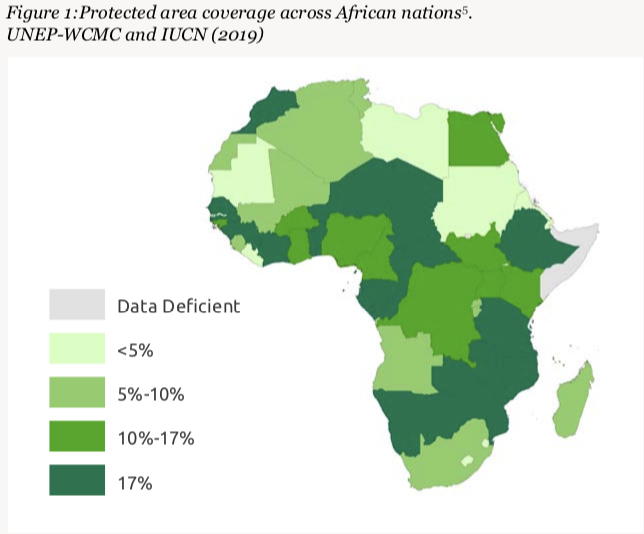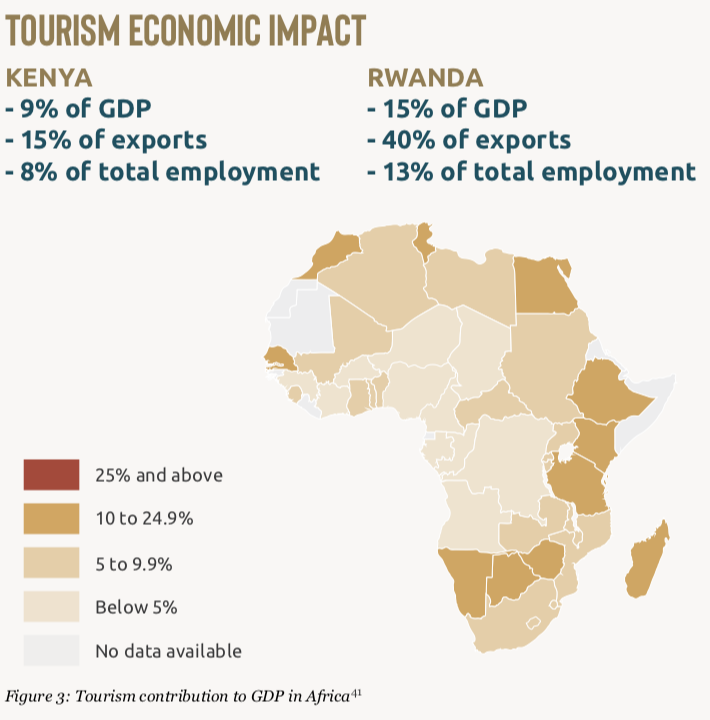African countries could increase tourism earnings from protected areas by between four and 11 times in the coming decade. This is the key finding of a working paper, which is the first in a series produced by Space for Giants and UN Environment entitled ‘Building a wildlife economy’. The series has been commissioned to inform a framework for the African Union and its member nations for the optimum use of wildlife to diversify and expand their economies, strengthen the livelihoods of their citizens, and achieve ecological resilience in the face of pressing modern social and environmental challenges. Conservation Capital
The following excerpts of the summary as well as the graphics are from the working paper:
The global tourism industry accounts for one in ten jobs and 10.4 % of GDP or $8.8 trillion annually. It accounted for one of every five new jobs created over the last five years, globally. Nowhere on the planet is tourism growing faster than in sub-Saharan Africa, where the number of hotels has doubled in just four years. By 2030 the number
of international tourists to Africa is projected to jump from 62m to 134m people. This rate of growth is potentially transformative because already tourism comprises 8.5% of the continent’s economy supports 24m jobs.
Wildlife is the single biggest driver for Africa’s tourism growth. The United Nations World Tourism Organisation found that 80% of annual sales of trips to Africa were for wildlife watching: people wanting to visit the natural ecosystems that contain some of the last great wildlife spectacles left on Earth, including populations of terrestrial megafauna that are globally unique. In doing so, these tourists provided a powerful financial boost to the African countries that succeeded in attracting their custom.
The most thorough study conducted into the financial impact of nature-based tourism has found Africa’s 8,400 Protected Areas are generating $48 billion in direct in-country expenditure. This demonstrates that significant financial opportunity is available to the African governments that protect, market, and develop their natural assets in the right way for the tourism market – and that financial opportunity is only predicted to grow significantly.
The research undertaken for this Working Paper revealed that while Africa’s unique diversity of wildlife and habitat has the potential to radically transform the continent’s economy, this exceptional asset is being rapidly degraded. For
Nature-based tourism is not only a solution to this funding gap but if implemented correctly, it has the potential to significantly improve the livelihoods of citizens.
